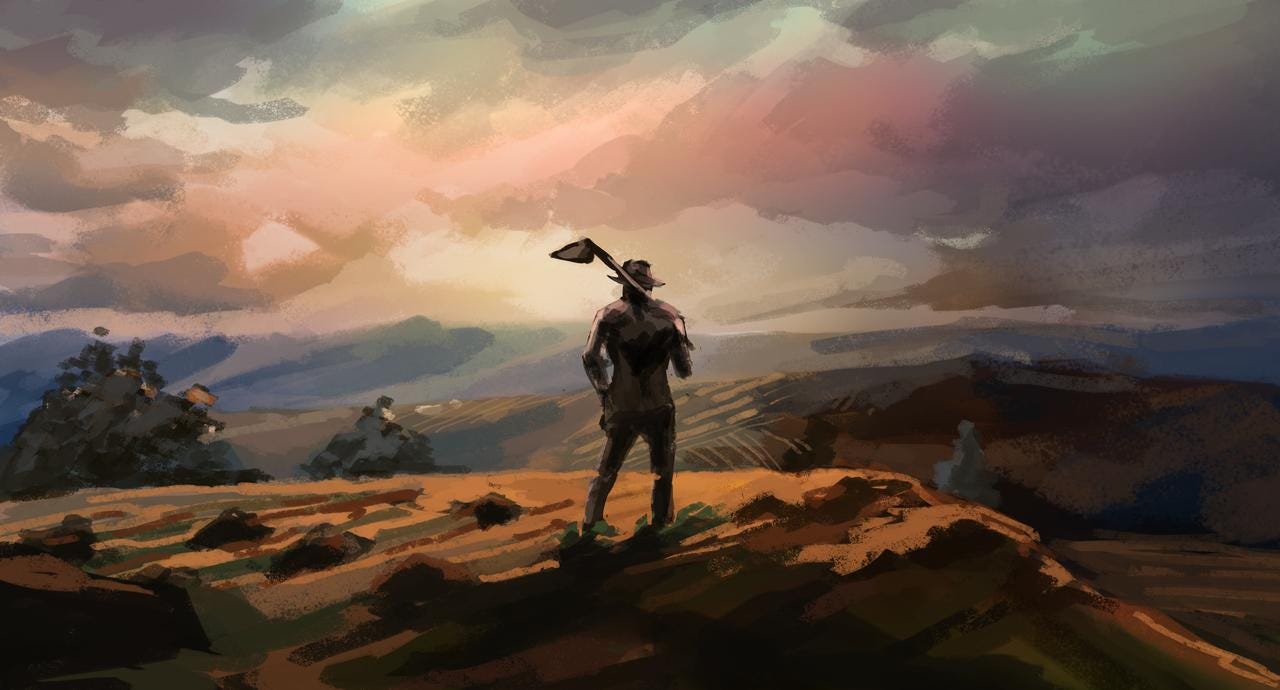
“When you plant lettuce, if it does not grow well, you don’t blame the lettuce.
You look for reasons it is not doing well.
It may need fertiliser or more water or less sun.
You never blame the lettuce.”
― Thich Nhat Hanh
Charles Handy is a giant of contemporary thought. I spent an evening with Charles in front of a blazing fire at his home in London. We discussed a selection of his theories and his advice for the future. Amidst the many ideas we discussed, Charles shared how if someone has an interest in a certain subject, they must find ways to “influence” serendipity. He phrased it as follows, “If you are interested in apples, then you must go to an orchard”. This concept connected with something Iain McGilchrist mentioned on the Innovation Show a few months ago when he said, one must “put oneself in the way” of the opportunity they desire. Iain used the analogy of looking for a partner, saying if you are looking for a date you simply don’t stay at home in your apartment, you get out there, you go to a bar or a samba class, thus “putting yourself in the opportunity’s way”.
Walt Disney is a hero of such a mindset. Walt travelled to Holywood in search of work as discussed on Innovation Show 177 with Mike Goldsby.) Happy accidents happen when you put yourself in the way and Walt certainly did just that. With not a cent to his name, Walt blagged entry to the movie sets in Hollywood until an opportunity came his way. In doing this, he landed an opportunity to create his first commissioned cartoon for Universal Studios.
I share all this to draw the connection to innovation. One of the most frustrating directives in any business is “We have to be more Innovative”. Organisations expect their people to come up with novel concepts and indeed implement those concepts that change nothing about their organisational environment. There is a failure to recognise that the organism cannot act in isolation from the environment, the two are transactional. Think for a moment of a farmer, a farmer does not make crops grow, a farmer instead creates the conditions for crops to thrive. A farmer prepares the soil, adding the necessary nutrients when required, watering the crops as needed, and tending to them from the root to the fruit.
Corporate Innovation is no different. Innovation arises spontaneously from the relationships, interactions, and convictions of those from whom it is composed. In the “corporate farm”, ideas are the seeds and the culture of the organisation is the soil. Even if you have the best seeds in the world, when placed in the wrong soil, they will simply not grow. Saplings may appear, they may stutter and start, but the entire crop will ultimately fail. Even an average seed may succeed when planted in the proper conditions.
Preparing The Soil

“One cannot speak of leaders who cause organisations to achieve superlative performance, for no one can cause it to happen. Leaders can only recognise and modify conditions that prevent it; perceive and articulate a sense of community, a vision of the future, a body of principle to which people are passionately committed, then encourage and enable them to discover and bring forth the extraordinary capabilities that lie trapped in everyone, struggling to get out.” — Dee Hock, Founder and CEO Emeritus of VISA (and upcoming guest on the Innovation Show)
Leaders must create the environment for innovation to happen. You cannot mandate that we must be more innovative, instead, you create a psychologically safe environment (discussed in depth on Innovation Show 189 with Amy Edmondson). Psychological safety, as defined by Amy as “the belief that the workplace is safe for interpersonal risks like asking questions, offering a half-baked idea, admitting a mistake and so forth.” While such safety may seem trivial, in reality, it is rare. Psychological safety is the soil in which seeds of change can flourish. Those seeds include innovation projects, transformation programmes and change initiatives.
Creating a psychologically safe environment is the first step towards putting an organisation in the way of innovation.
A word of warning however, for corporate farms. When you acquire or integrate a startup, beware transplanting the crops into your corporate soil. In many cases, trying to impose a toxic or alien culture upon a startup is the first step towards its demise.
THANK YOU FOR READING
Charles Handy’s books on management — including Understanding Organisations and Gods of Management — have changed the way we view business. His work on broader issues and trends — such as Beyond Certainty — has changed the way we view society.
In The Second Curve, he builds on a life’s work to glimpse into the future and see what challenges and opportunities lie ahead. He looks at current trends in capitalism and asks whether it is a sustainable system. He explores the dangers of a society built on credit. He challenges the myth that remorseless growth is essential. He even asks whether we should rethink our roles in life — as students, parents, workers and voters — and what the aims of an ideal society of the future should be.
Provocative and thoughtful as ever, he sets out the questions we all need to ask ourselves — and points us toward some answers.
I was so fortunate to spend an evening with Charles in his home in London. He is an incredible man with an intriguing view of things. This was a memorable moment for me as I met a personal hero.
We discuss:
- Disruption
- Efficiency v Effectiveness
- Management v Leadership
- Purpose
- Shamrock Organisations
- The Doughnut Projects
- Communities in Organisations
- Education
- Parenting
- and so much more
Have a Listen:
- Web http://bit.ly/2FwsOJw
- Soundcloud https://lnkd.in/gBbTTuF
- Spotify http://spoti.fi/2rXnAF4
- iTunes https://apple.co/2gFvFbO
- Tunein http://bit.ly/2rRwDad
- iHeart http://bit.ly/2E4fhfl